Act I
The Carousal
Chamber in Oprichnik Grigory Gryaznoy’s house. Grigory is desperate: he has fallen passionately in love with Marfa, daughter of the merchant Sobakin, but she is already betrothed to the young boyar Ivan Lykov. In order to put his love out of his mind, Grigory called some guests to a drinking-party. One of them is the Tsar’s foreign physician Bomelius, the other is Lykov.
The guests arrive, led by Malyuta Skuratov, Gryaznoy’s friend. Lykov who just returned to Russia, tells the assembled company of the life abroad. The guests sing the praises of their sovereign, Ivan the Terrible, drink and dance.
Malyuta mentions Lyubasha and tells Gryaznoy to call her. “Who is Lyubasha?”, Bomelius asks. “Gryaznoy’s mistress, a right bonny lass!”, Malyuta replies. At Malyuta’s request, Lyubasha sings a song about bitter fate of a girl who is forced to marry a man she doesn’t love. The carousal comes to an end and the guests depart. Gryaznoy detains Bomelius.
Lyubasha, sensing that something is wrong, hides and listens to their conversation. Gryaznoy asks Bomelius for a love potion. The physician promises to provide him with powder that can arouse love in a girl’s heart. After Bomelius has gone, Lyubasha accuses Grigory of having fallen out of love with her but Grigory won’t listen. He can think of nothing else but his passion for Marfa and leaves when the bells sound for the early morning service. Lyubasha is left alone with her despair. She vows to find the girl who is the cause of her troubles and bewitch her away from Gryaznoy.
Act II
The Love Potion
A street in the Alexandrovskaya Sloboda. The parishioners are coming out of the monastery after the evening service. At the porch of her house, Marfa stands talking to her friend Dunyasha of her betrothed, Ivan Lykov. A group of Oprichniks appears through the monastery gates. Marfa doesn’t recognize Ivan the Terrible who is leading the group, but the stranger’s intent gaze frightens her. It is only when she catches sight of her father and her betrothed, who are approaching the house, that she calms down.
Sobakin invites Lykov into the house and the girls follow them in. Dusk is falling. A shadow is circling round the Sobakin house. It is Lyubasha. She cautiously steals up to the porch: she wants to have a look at her rival. Having peeped through the lit-up window, Lyubasha is struck by Marfa’s beauty. The desperate girl rushes to Bomelius’s house. Bomelius appears in asnwer to her call. Lyubasha begs him to sell her a potion which will destroy human beauty. Bomelius agrees, demanding in return Lyubasha’s love. Indignant, Lyubasha wants to leave, but Bomelius threatens to tell Gryaznoy what she has asked him for. The sound of Marfa’s laughter coming from the Sobakins house, makes Lyubasha agree to Bomelius’s terms. The potion is ready, and she goes into his house.
The Oprichniks appear on the street, coming back from an execution ride.
Act III
The Best Man
Chamber in Merchant Sobakin’s house. Sobakin tells Ivan Lykov and Gryaznoy that Marfa and Dunyasha have been summoned to the palace along with 10 other girls as the Tsar intends to choose himself a bride. This alarms both Lykov and Gryaznoy. Sobakin tries to calm Lykov down. Gryaznoy offers to be Lykov’s best man at his wedding.
Domna Saburova, Duniasha’s mother, appears. She describes the ceremony: the Tsar hardly glanced in Marfa’s direction, but he paid Dunyasha a lot of attention, joking and talking with her. Lykov sighs with relief.
Following the betrothal ceremony rules, Gryaznoy fills two goblets for the bride and bridegroom. Unnoticed, he pours the powder that Bomelius has given him into Marfa’s goblet — the love potion. As soon as Marfa, who has returned from the palace together with Dunyasha, enters the room, Grigory congratulates the couple, hands them their goblets and makes them drink. Saburova strikes up a song in honour of the bride, and all the household joins in.
Malyuta appears with the boyars and proclaims the Tsar’s will — Marfa is to be his wife.
Act IV
The Bride
The Tsar’s chamber where Marfa, the Tsar’s bride, is now living before her wedding. But she is ill, and bitter fears give Sobakin no peace. Domna Saburova tries in vain to allay his anxiety.
Gryaznoy appears, and Marfa comes out of her room, pretending to be well. Gryaznoy tells Marfa that Lykov had confessed to giving Marfa a potion, and that he, Gryaznoy, with his own hands had carried out the Tsar’s sentence. Learning of the death of her beloved, Marfa falls unconscious to the floor. When she recovers, she recognizes no one. Mistaking Gryaznoy for Lykov, she converses tenderly with him, recalling the happy days they have spent together. Shaken by Marfa’s words, Gryaznoy admits that he had slandered Lykov and that he was the one who gave Marfa the love potion. But Marfa doesn’t hear him at all, though. Gryaznoy is desperate with guilt. But before going to his trial, he wants to have his revenge on Bomelius. Lyubasha who has appeared in the palace, tells Grigory how she had substituted poison for the love potion Bomelius had given him, and which Grigory had then given to Marfa. Grigory kills Lyubasha.
But Marfa sees and hears nothing. All her thoughts are in the past, with Lykov.
Time: Autumn, 1572
Place: Aleksandrovsky settlement, Moscow, Russia
Act 1: The Feast
The Oprichnik Gryaznoi loves Marfa, daughter of the merchant Sobakin, even though Gryaznoi already has a mistress, Lyubasha, whom he has neglected of late. Marfa is already beloved of the boyar Lykov. In a jealous rage against Lykov, Gryaznoi arranges to cast a spell on Marfa with a magic potion from Bomelius, the Tsar's physician. Lyubasha has overheard Gryaznoi's request.
Act 2: The Love Philtre
Lyubasha in turn obtains from Bomelius another magic potion with which to cancel any feelings of Gryaznoi for Marfa. Bomelius consents, but at the price of an assignation with Lyubasha for himself.
Act 3: The Best Man
In the meantime, the Tsar of the title, Ivan IV (known as "Ivan the Terrible"), is looking for a new bride from the best aristocratic maidens in Russia. The Tsar settles upon Marfa. At the celebration of the engagement of Marfa to Lykov, everyone is surprised when the news arrives of the Tsar's choice of Marfa as his bride. Gryaznoi had slipped what he thought was the love potion from Bomelius into Marfa's drink at the feast.
Act 4: The Bride
At the Tsar's palace, Marfa has become violently ill. Lykov has been executed, at the instigation of Gryaznoi, on charges of attempting to kill Marfa. When Marfa learns that Lykov is dead, she goes insane. Eventually, Gryaznoi admits that he had slipped a potion into her drink, and after learning that it was poisonous, asks that he himself be executed. Lyubasha then confesses that she had substituted her potion from Bomelius for Gryaznoi's. In a rage, Gryaznoi murders Lyubasha, and is then taken to prison eventually to be executed. In her madness, Marfa mistakes Gryaznoi for Lykov, inviting him to return the next day to visit her, then dies.


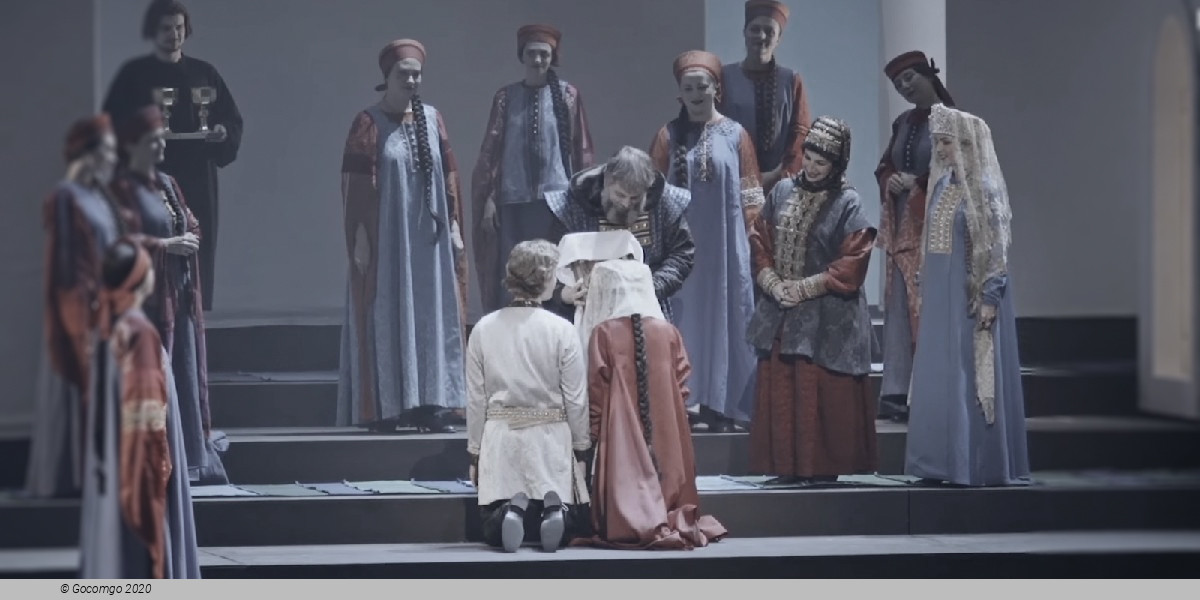
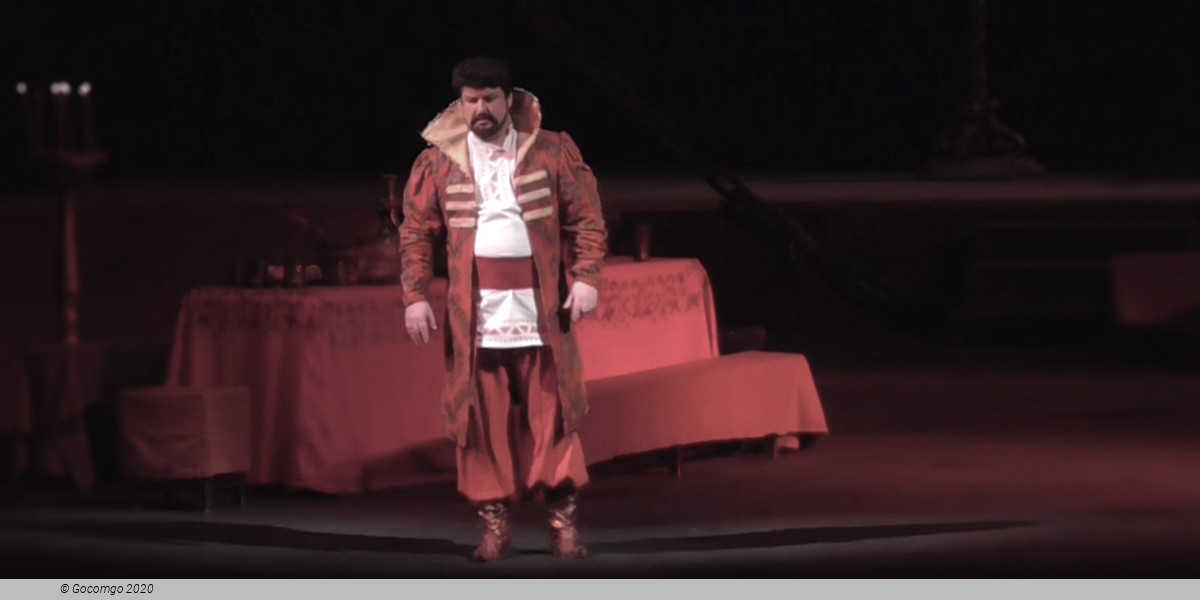
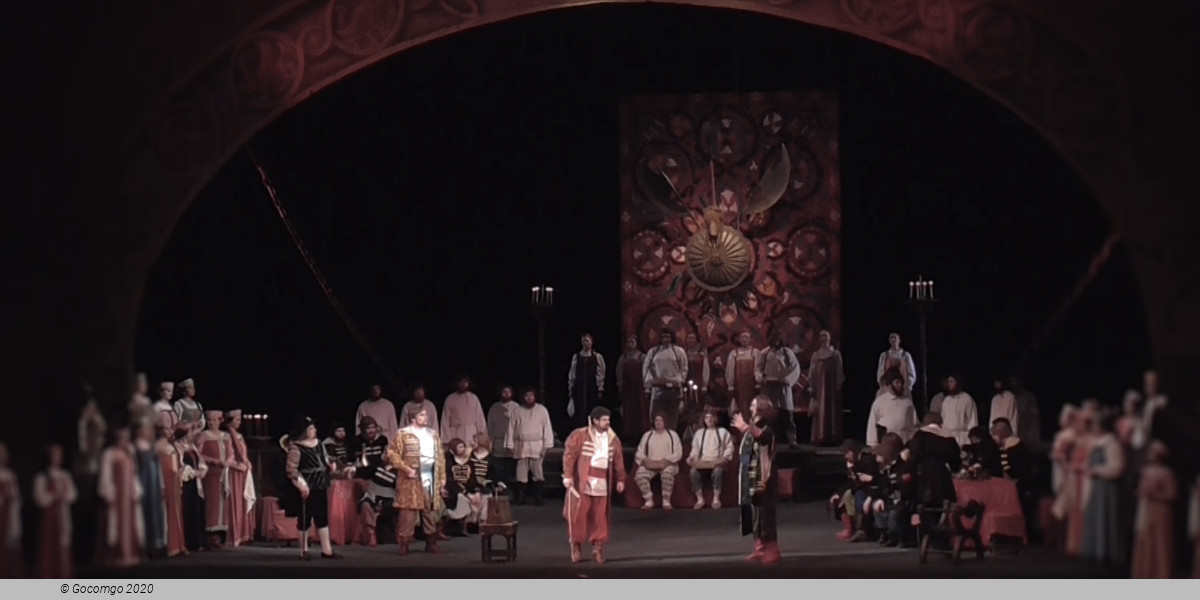
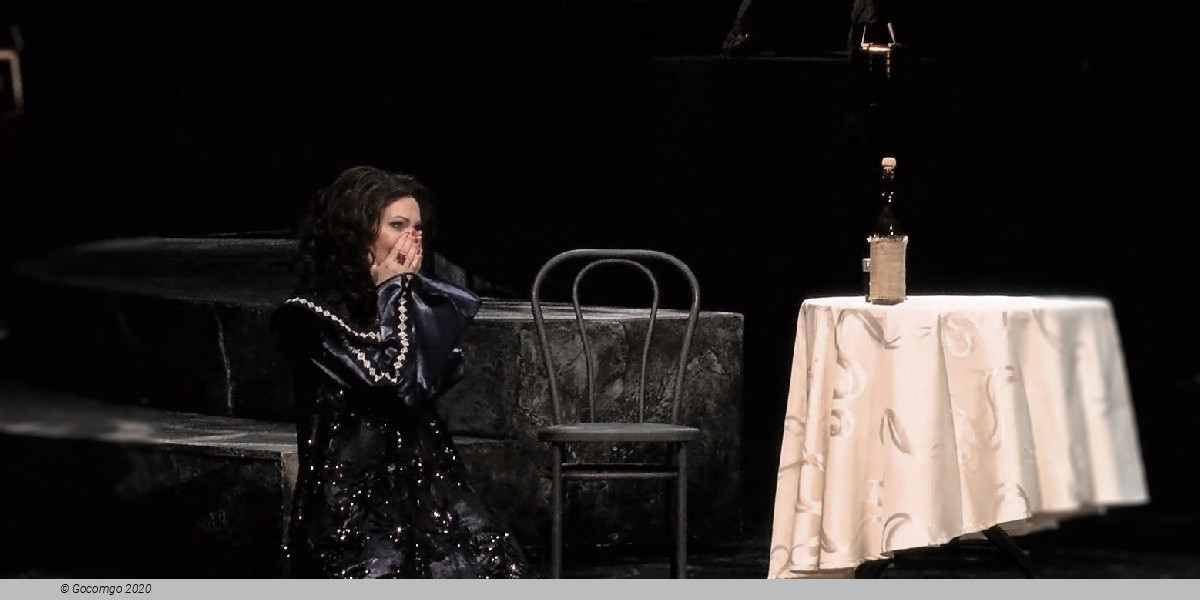
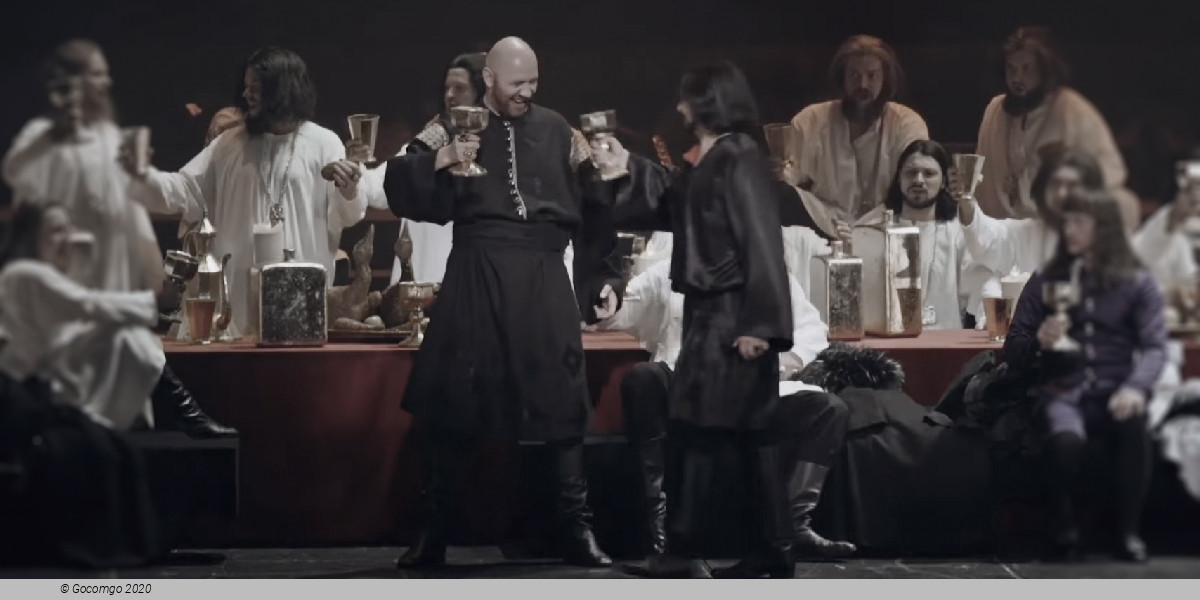
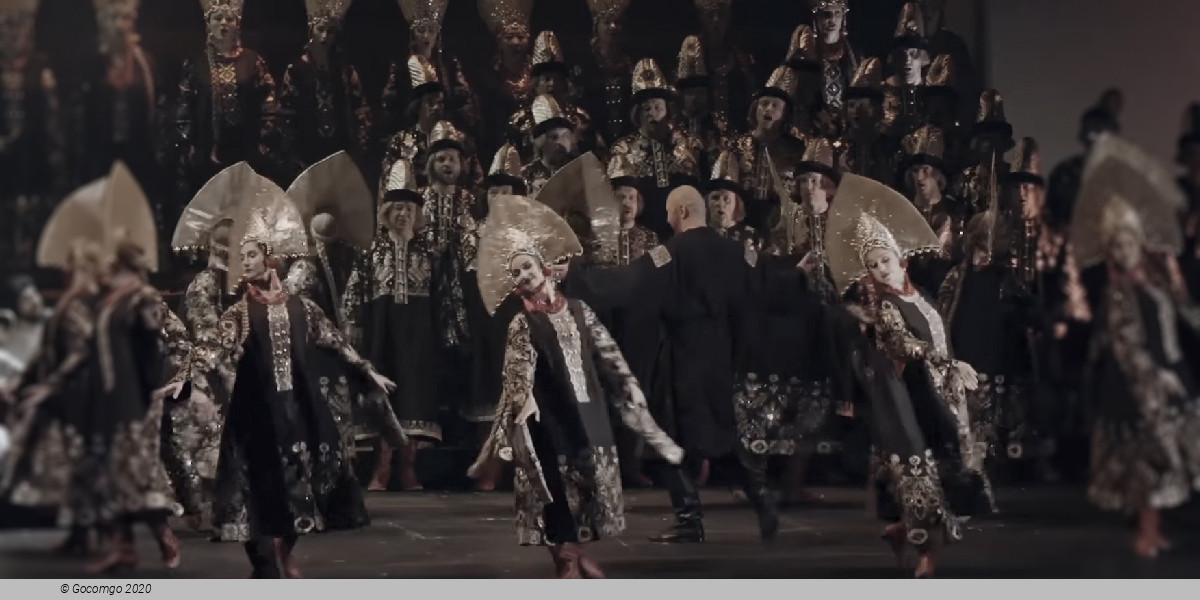
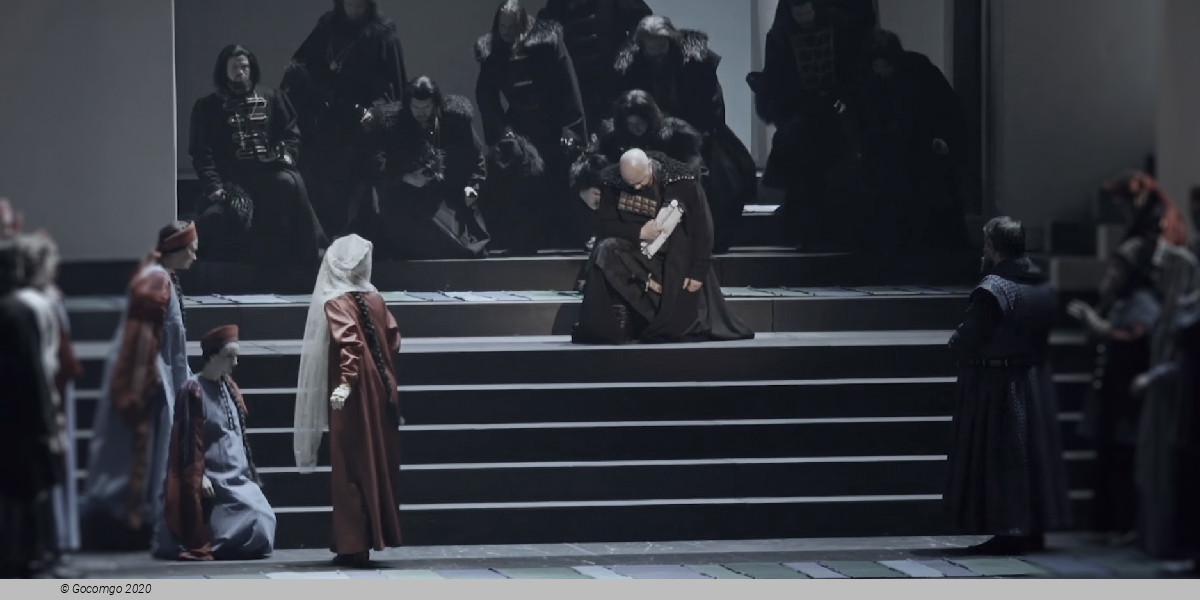
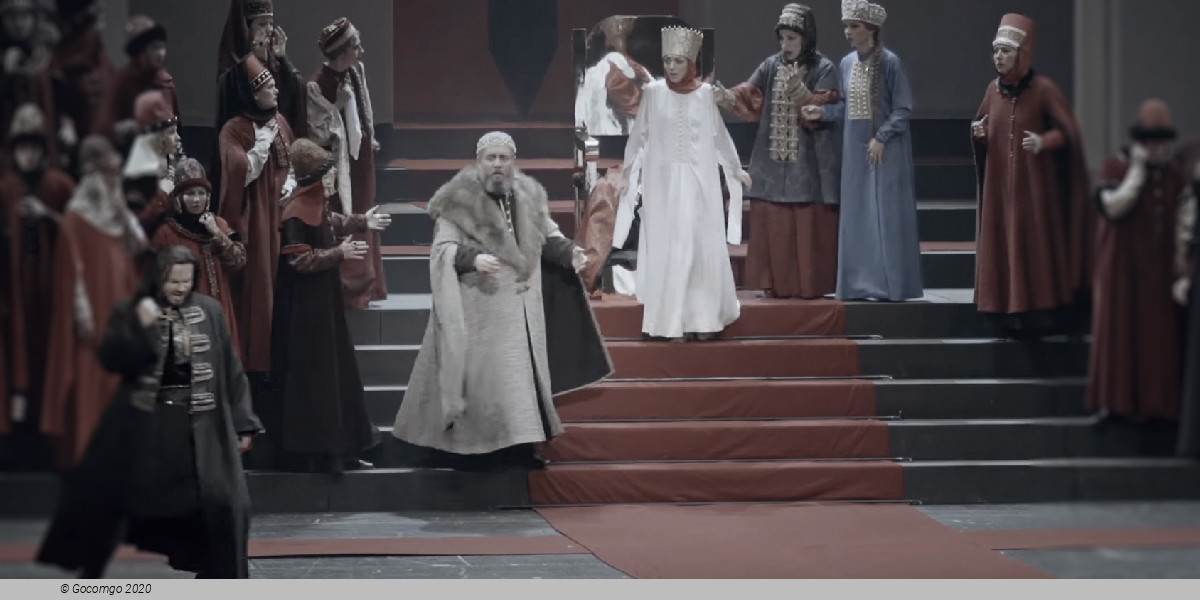
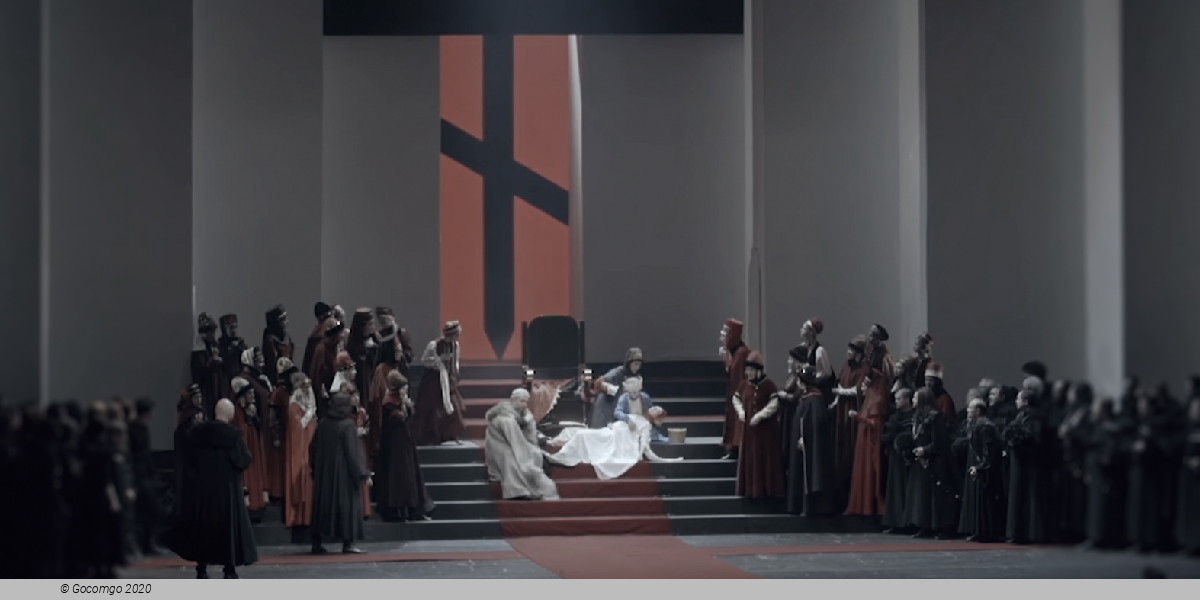
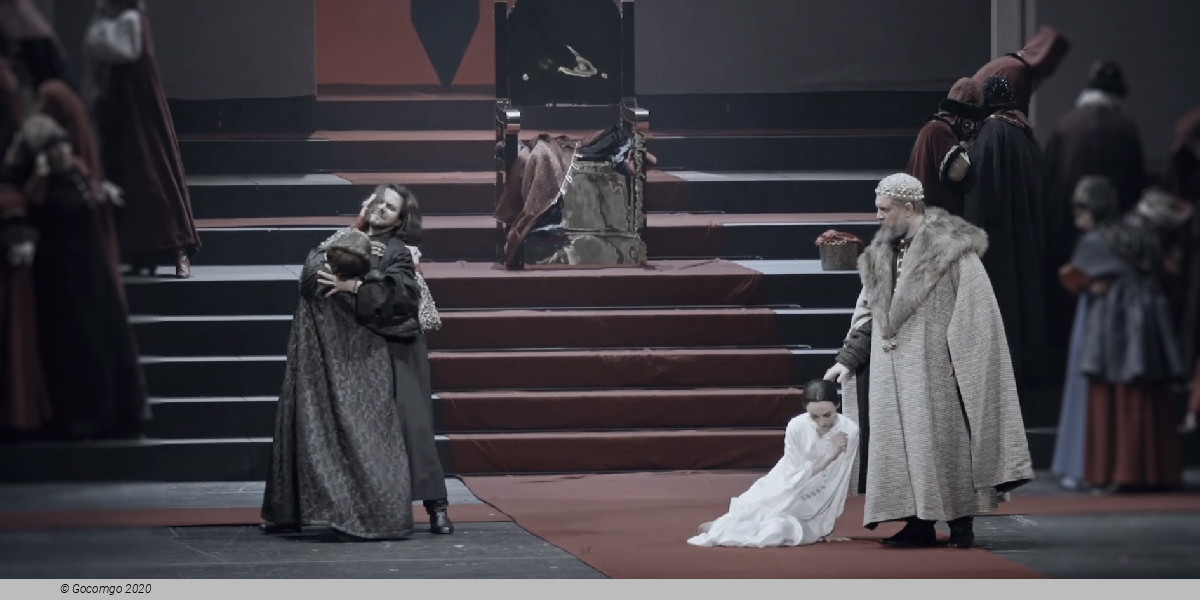
 Teatralnaya Square 1
Teatralnaya Square 1